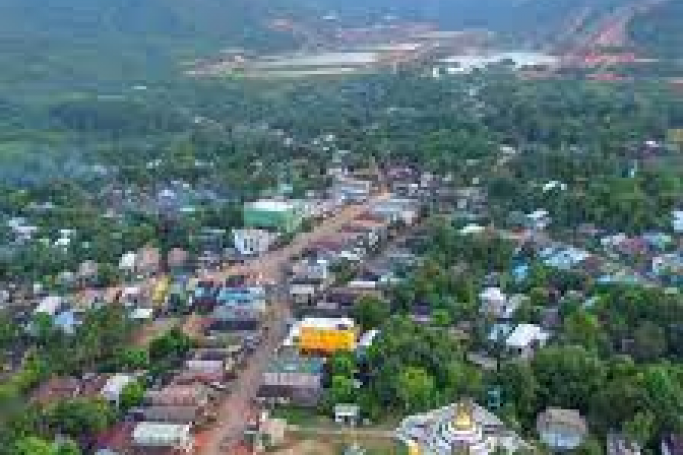The Human Rights Foundation of Monland (HURFOM) is calling for a referral of the Myanmar military to the International Criminal Court to ensure that there is an end to military rule.
Whilst the new sanctions announced by the United States, Canada, Australia and the United Kingdom to mark the second anniversary of the February 2021 coup were welcome, according to HURFOM these actions came too little too late for the thousands of people killed by the Burma Army.
HURFOM has been documenting severe violations against the rights and freedoms of civilians in southeastern Myanmar committed by the junta since the February 2021 coup.
In the over 730 days since 1 February 2021, HURFOM has reported that nearly 25,000 people have been forced to flee their homes in Southeastern Burma due to conflict between the junta and armed revolutionary organisations.
After they’ve left, villages are often scorched, belongings looted, and livestock shot and killed. In addition, more than 3,000 innocent civilians have been arrested and detained. The numbers of those killed are likely much higher than HURFOM, and other documentation organizations can report safely.
HURFOM condemns the ongoing human rights violations and calls for immediate international intervention and for global actors to pursue accountability mechanisms at the highest level, which put an end to military impunity at last.
Military affairs observers have also said that the junta's declaration of martial law in many townships across the country has signalled more brutal oppression of pro-democracy groups, civilians, and local resistance armed forces strongholds.
One example of ongoing random violence against civilians in southeastern Myanmar was reported by HURFOM.
At about 10:00 a.m. on 31 January a 71-year-old villager lost one of his legs when he stepped on a landmine while repairing a water pipe near a bridge in Baykalwe Village, in Mon State’s Ye Township.
He was initially taken to Lamai Hospital before being transferred by a local support team to the 300-bed hospital in Mawlamyine City.
Apparently, junta troops often lay mines close to bridges near to their camps to prevent their adversaries from approaching the camps.
A source who wishes to remain anonymous said: "In many cases, the soldiers put the landmines just outside their camp's fence for protection. We must be cautious about these unseen dangers while working near the battalions.”
Another person said: "It is speculated that mines are often planted near military bases. Three of our villagers previously suffered serious injuries. All were disabled in attacks by Light Infantry Battalion No. 586. No group or authorities ever confesses to these crimes.”
According to HURFOM there are four junta military bases in Tanintharyi Township. Its researchers estimated that in the last week of January, in Tanintharyi Region, at least two residents were killed, 17 more were injured, and more than 4,000 people fled indiscriminate shelling by junta soldiers from the four bases.
A resident of Banlamut Village in Tanintharyi Township said: “From 24 January to 31 January, the junta perpetrated war crimes against local civilians. The fighting led to at least five injuries from my village [Banlamut] and four victims from our neighboring village, BawDeekam, three from Mawtone, another three from Uyinkam and at least two from Thamoke Chone village."












